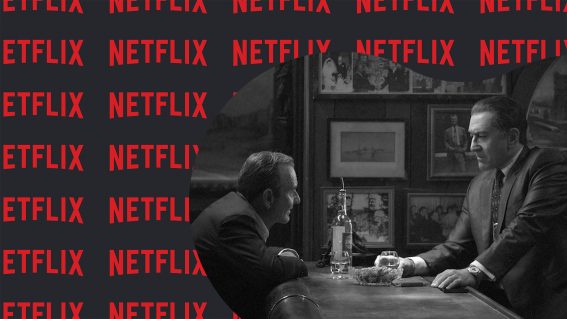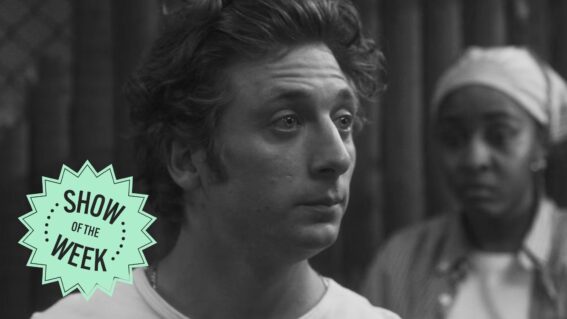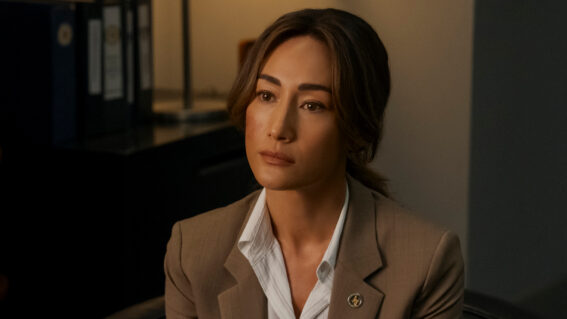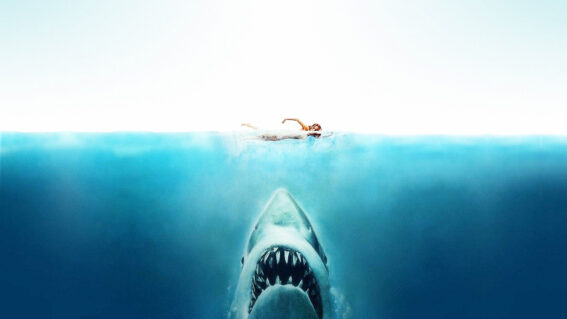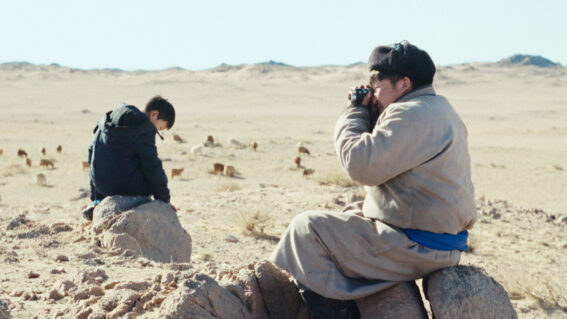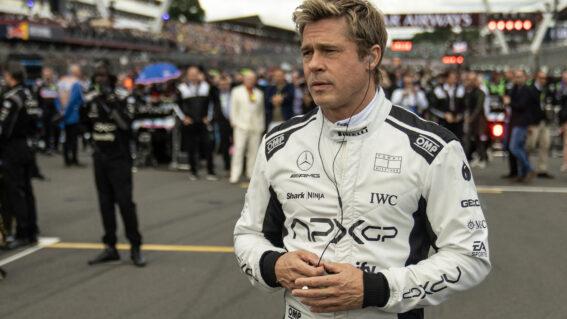What’s the best Russell Crowe exorcism movie?
Rusty whips out a crucifix in both The Pope’s Exorcist and new horror The Exorcism—which one’s more demonically entertaining?
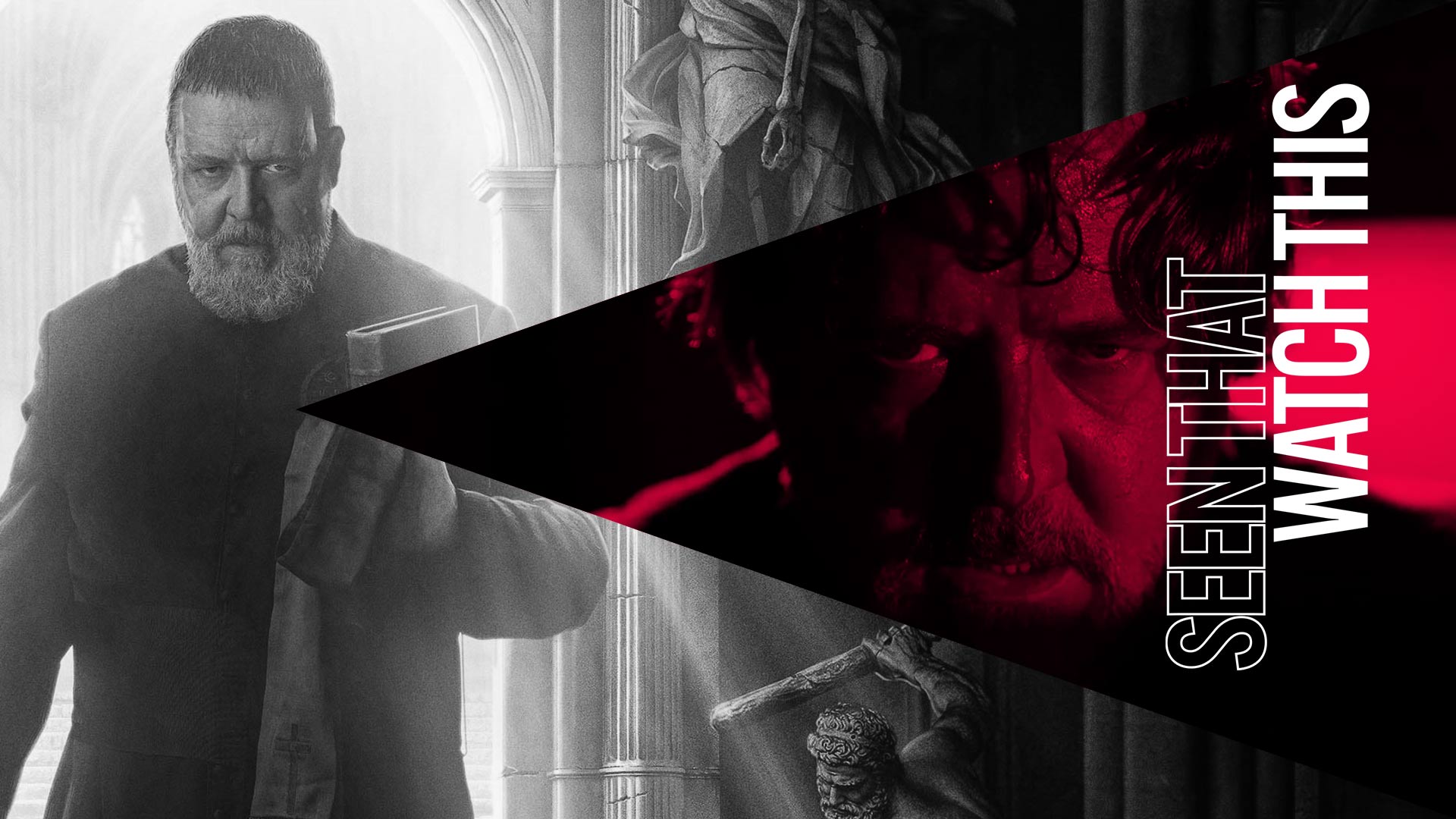
Seen That? Watch This is a semi-regular column from critic Luke Buckmaster, taking a new release and matching it to comparable works. This week, the power of Crowe compels you: he compares Rusty’s new film The Exorcism with his other exorcism outing, The Pope’s Exorcist.
The last couple of years will go down in the history books for several reasons, from the ascension of a new King of England to elections that will potentially realign the tectonic plates of global politics. But also for the time Russell Crowe really got into exorcisms. And what’s not to like—with those long black robes, demon-repelling crucifixes (which never seem to do anything) and all that projectile vomit? The bewhiskered, puffy-looking star has headlined not one but two exorcism movies released in as many years.
First came last year’s The Pope’s Exorcist, with Crowe whizzing around on a scooter doing the lord’s work as the titular character, Father Gabriele Amorth, a real person who died in 2016—though its many scenes of SFX-caked demonic carnage suggest some liberty might’ve been taken with the truth. Now, in his new movie, Crowe leads The Exorcism: a classic, straight-forward title for a production that’s neither of those things. Director Joshua John Miller brings pulpy horrors a-plenty, but also a self-aware meta spirit that starkly contrasts the other film’s more traditional approach.
Both end up in quite similar places, coughing up the blood and bile we expect from exorcist movies. But they take very different routes to get there, The Exorcism injecting the genre with some fresh blood via a “film within a film” twist. There is a priest in this movie, but he’s not played by Crowe, although Crowe does play a star actor playing a priest. The prologue scene, depicting the on-set death of the original actor Crowe’s protagonist Anthony Miller replaces, made me think of Scream; it was no surprise to see the name Kevin Williamson, the writer of three Scream movies (including the original), appear during the opening credits. For a splash of additional meta-ness, director Miller is the son of Jason Miller, the actor who played Father Damien Karras in The Exorcist.
Miller’s life has recently hit extreme turbulence, following the death of his wife and a descent into alcoholism. “I climbed inside a bottle for a couple of years, and it took me just as long to climb back out,” he tells his director (Adam Goldberg), who intends to make “a psychological drama wrapped in the skin of a horror movie.” That line to some extent also describes the film we’re watching, one layer of reality above, though that skin gets awfully swollen in the second half, which emphasises the horror and minimises the psychology.
Miller’s daughter (Ryan Simpkins) and a priest enlisted as an on-set advisor (David Hyde Pierce) wonder whether Miller’s increasingly strange behaviour is evidence that he’s possessed by a demon. The most interesting aspect of this part of the film, which I would’ve liked it to have been explored more, is the question of whether an actor can be possessed by a performance and by a demon at the same time.
There’s an inference that a man like Miller is prime meat for said demon, given he’s already haunted—by the bottle, by his fears and addictions, by the mistakes of the past. Which sounds a bit cliché but Crowe is pretty damn good at inhabiting broken people and bringing their pain to the surface, elevating what could’ve been a humdrum character. The film eventually descends into chaos, reducing his performance, but early on Crowe does much of the heavy lifting.
There’s nothing remotely humdrum about Amorth: a smug man of the cloth who, as The Pope’s Exorcist opens, tricks a demon out of exiting a boy’s body and entering a pig’s—then has the pig shot dead. Presumably demon possession funks up the palette and nobody ate the bacon. Playing Amorth looks like a lot more fun than playing Miller, allowing Crowe to deploy an enjoyable Italian accent, and to butts heads with church leaders, the protagonist hauled over coals for not following due process during that satanic swine incident. Amorth ingeniously responds by claiming it wasn’t an exorcism in the first place—just “a little theatre.”
Except it’s quite a lot of theatre, really, particularly after he involves himself in the case of a possessed boy named Henry (Peter DeSouza-Feighoney) whose mother (Alex Essoe) and sister (Laurel Marsden) have recently moved into an old Spanish abbey (big mistake). After an entertaining first act, the big question I had was whether the film could sustain momentum given it was already feeling a bit fusty and familiar. And indeed, by and large, it does, director Julius Avery and his screenwriters (Michael Petroni and Evan Spiliotopoulos) deciding to spectacularly scale up. Amorth and a fellow priest (Daniel Zovatto) explore an ancient underground setting; the Pope falls ill after reading about the case; Amorth unearths an ancient coverup from the church; and he discovers the devil wants to raise an army to storm the Vatican.
Both films gorge on Grand Guignol spectacle, but whereas The Exorcism takes the easy way out, fattening that horror skin while diluting the psychology, Avery’s film feels like it’s working hard to sustain our interest—making it, to me, the clearly superior picture. If you thought Rusty had hung up his robes and left the church, having had his demon-vanquishing fill, think again: a sequel to The Pope’s Exorcist is in the works, presumably returning him to the role.











